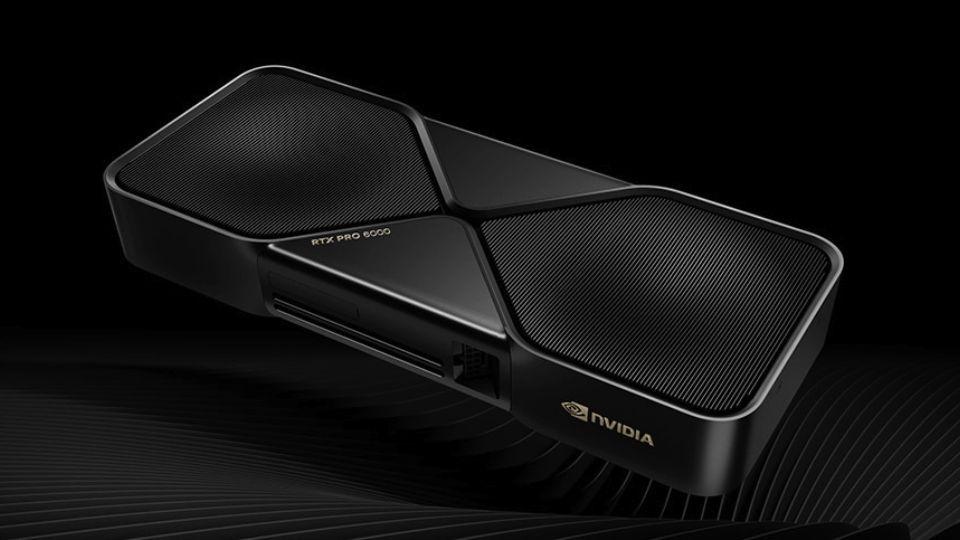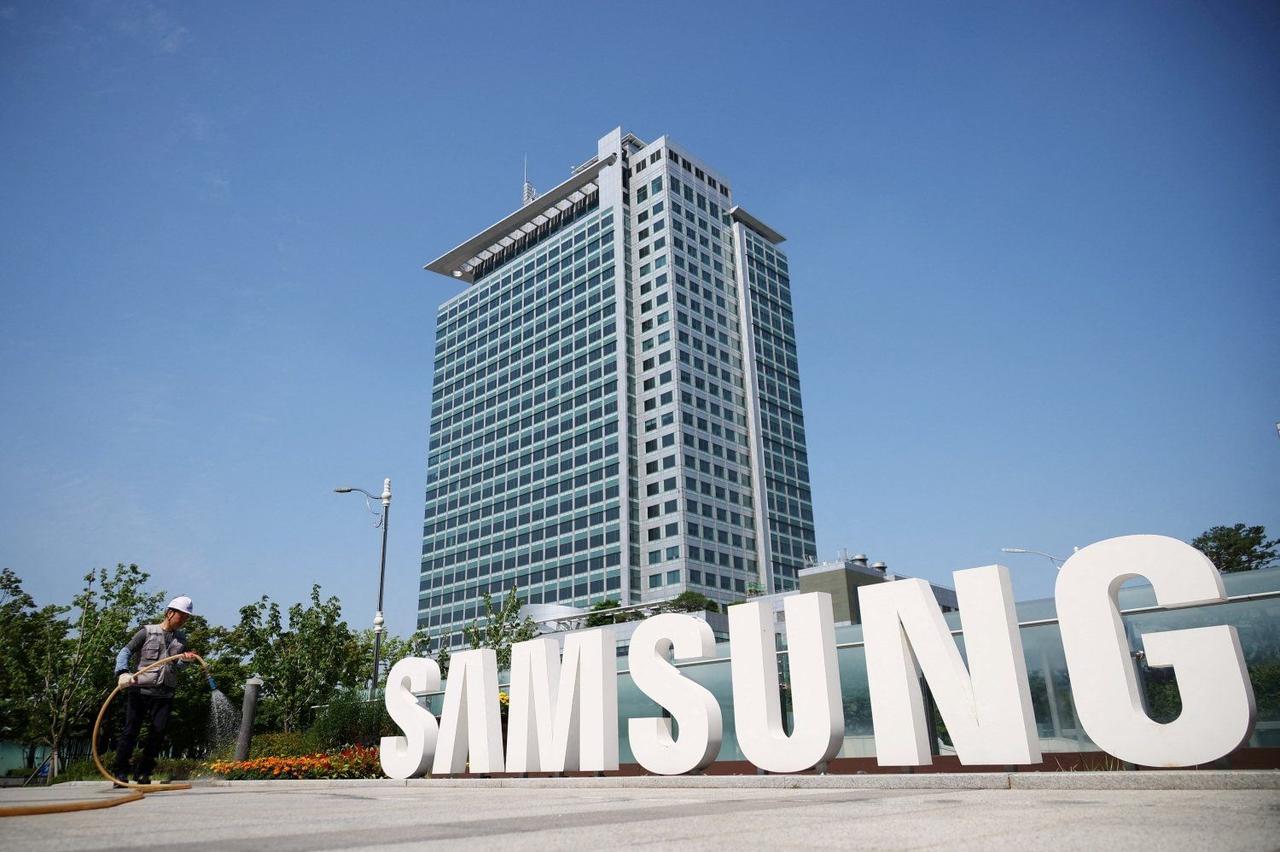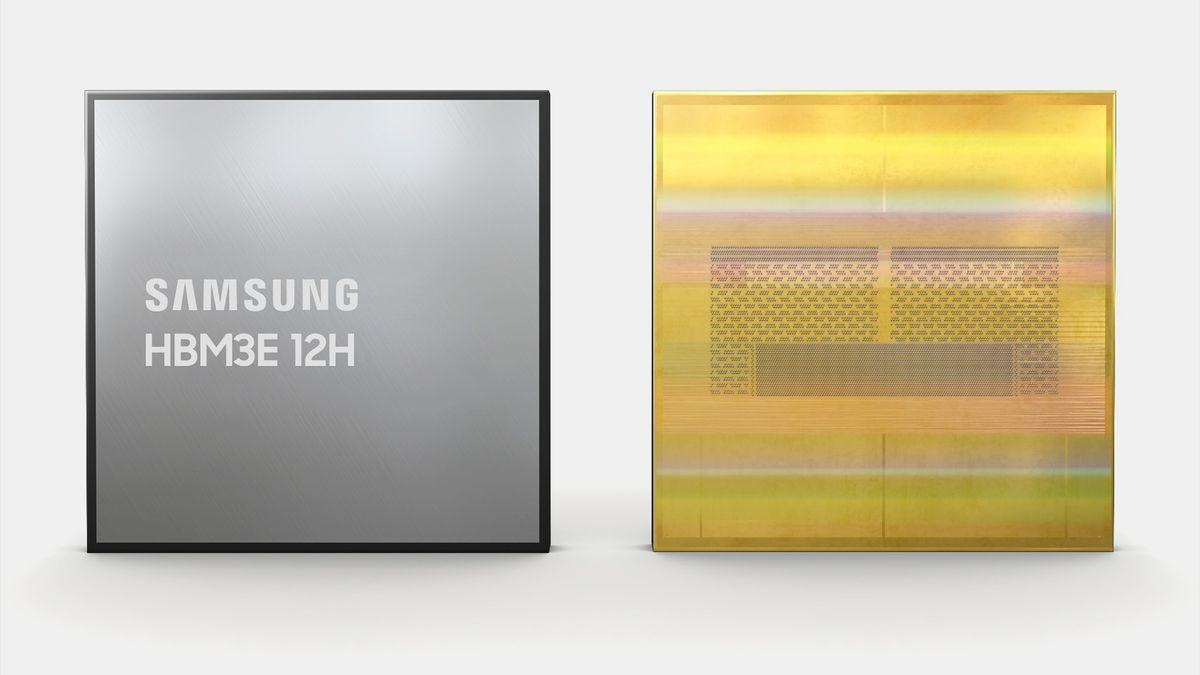NVIDIA Doubles Down on GDDR7 Production for AI GPUs and Potential Gaming Cards
2 Sources
2 Sources
[1]
Nvidia has reportedly asked Samsung to double its production of GDDR7, possibly for AI GPUs to China -- although we're hoping for some more VRAM-stacked RTX 50-series Super cards
Reports indicate that Nvidia has given Samsung the hurry up to double its production of GDDR7, the very same stuff you'll find strapped to RTX 50-series GPUs. And while it's tempting to get excited about the idea of many, many RTX 50-series Super variants hitting the market sometime soon with oodles and oodles of delicious VRAM, hence the production call, we probably shouldn't count our chickens just yet. That's because of the ever-present spectre of AI hanging over our gaming hardware hopes and dreams. After all, AI hardware is where Nvidia makes the vast majority of its money these days, and given the recent loosening of chip export restrictions, I'd say it's a safer bet that most of this memory is destined for China-friendly RTX Pro 6000 variants and the like. Boo. Still, ETnews reports that Nvidia has told Samsung to double up its GDDR7 production -- according to its industry sources -- and that the Korean DRAM manufacturer has duly responded. The sources are quoted as saying "mass production is imminent", although the outlet itself speculates that the GDDR7 is likely destined for AI accelerators. Still, why not both? It'd make sense that while Nvidia was ordering a job lot of the super-speedy VRAM, some of it might be earmarked for new gaming GPUs, too. While us gamers might only be a small fraction of Nvidia's revenue at this point, rumours persist that the RTX 50-series Super variants will be equipped with much more VRAM than the current GPUs. And, given that VRAM loadouts of the current cards have been criticised for being a little light, it also makes sense that Nvidia will be looking to stuff the new variants with a fair bit more. After all, most RTX Super/Ti variants to date have been clockspeed boosted to differentiate them from their peers, but most of the RTX 50-series cards we've tested have been surprisingly easy to overclock regardless. So I'd say there wouldn't be a massive amount to be gained releasing a Super variant, if out-of-the-box higher clockspeeds were the only thing customers were paying for. More VRAM, though? That might shift a few units, although by the look of Nvidia's recent financials, it's been selling the current cards hand over fist. Still, whatever the results may be (and presuming ETnews is correct), I'd say it's still likely that the lion's share of GDDR7 will be going towards increased AI GPU production, at the very least. We can fantasise, though, can't we?
[2]
NVIDIA Orders $144 Million Of Memory Chips From Samsung For China-Specific Blackwell B40 AI GPU - Report
This is not investment advice. The author has no position in any of the stocks mentioned. Wccftech.com has a disclosure and ethics policy. NVIDIA has asked Samsung to double its GDDR7 memory production, according to reports in the Korean media. The DGGR7 memory is used in NVIDIA's latest AI GPU accelerators, and the sources believe that the production increase request also relates to these chips. The details share that NVIDIA has told Samsung it will double its GDDR7, which requires the latter to expand its production of the latest memory chips. NVIDIA's latest earnings saw its Chinese sales restrictions take the spotlight again as the firm did not record any revenue from the sales of its China-specific H20 AI GPUs. However, after the earnings, CEO Jensen Huang outlined in an interview that he was in talks with the Trump administration to secure licenses for the next-generation of China-specific AI GPUs. These GPUs are dubbed the Blackwell B40 chips, and they purportedly rely on GDDR7 memory instead of HBM memory as the latter is subject to US export control restrictions. Huang's comments appeared to be targeted towards assuring investors that his firm had future China revenue in the pipeline even though it did not ship any H20 products to the country in the second quarter. Consequently, today's report from South Korea's ET News makes it likely that NVIDIA believes it can secure US approval for the B40 chips. In a press conference at the White House last month, President Trump confirmed that Huang had approached him for the Blackwell approvals. " "Now, on the Blackwell, I think he's coming to see me again about that but that will be an unenhanced version of the big one," Trump had said. Now, a report from ETNews claims that NVIDIA has asked Samsung to double its GDDR7 memory production in anticipation of more orders. Sources again speculate that the GDDR7 memory chips will be used in the B40 chips, as NVIDIA is preparing to sell the China-specific chips in large volumes to the Asian country. Adding financial details into the mix, the sources speculate that the GDDR7 substrates from NVIDIA might cost as much as KRW200 billion or roughly $144 million. The China-specific B40's GDDR7 demand also marks a rare win for Samsung in the high-end AI GPU industry since the Korean firm has struggled with winning NVIDIA over with its HBM products. Reports in the Korean press have claimed that Samsung is eager to enter NVIDIA's HBM supply chain by reducing product prices. Others have claimed that the Korean firm is reportedly supplying NVIDIA with HBM3e memory chips that could be used in NVIDIA's latest Blackwell Ultra AI GPUs.
Share
Share
Copy Link
NVIDIA has reportedly asked Samsung to double its GDDR7 memory production, likely for AI GPUs destined for China and possibly for next-generation gaming cards.
NVIDIA's Strategic Move in Memory Production
NVIDIA has reportedly asked Samsung to double its production of GDDR7 memory, signaling a significant shift in the company's strategy for both AI and gaming markets
1
2
. This move comes amidst ongoing discussions about chip export restrictions and NVIDIA's efforts to maintain its strong position in the Chinese market.Potential Applications of Increased GDDR7 Production
The primary speculation is that the increased GDDR7 production is destined for AI GPUs, particularly those aimed at the Chinese market. NVIDIA CEO Jensen Huang has been in talks with the Trump administration to secure licenses for the next-generation of China-specific AI GPUs, known as the Blackwell B40 chips
2
. These chips are expected to use GDDR7 memory instead of HBM memory, likely due to export control restrictions on the latter.
Source: PC Gamer
However, there's also hope in the gaming community that some of this increased memory production could be allocated to next-generation gaming GPUs. Rumors suggest that RTX 50-series Super variants might be equipped with significantly more VRAM than current models, addressing criticisms about light VRAM loadouts in existing cards
1
.Financial Implications and Market Dynamics
The order for increased GDDR7 production is estimated to be worth around $144 million, representing a substantial investment by NVIDIA
2
. This move also marks a win for Samsung in the high-end AI GPU industry, where it has struggled to compete with other memory suppliers for NVIDIA's business.Navigating Export Restrictions
NVIDIA's focus on GDDR7 for China-specific GPUs appears to be a strategic decision to navigate US export control restrictions. By using GDDR7 instead of HBM memory, NVIDIA may be able to continue serving the Chinese market while complying with US regulations
2
.Related Stories
Impact on Gaming Market
While the primary focus seems to be on AI applications, the gaming market could also benefit from this increased memory production. The potential for RTX 50-series Super cards with increased VRAM could address current limitations and provide a significant upgrade for gamers
1
.NVIDIA's Market Strategy
Source: Wccftech
This move underscores NVIDIA's continued dominance in the AI hardware market and its efforts to maintain strong sales in both AI and gaming sectors. Despite recent challenges with China-specific H20 AI GPUs, NVIDIA appears to be proactively planning for future market demands and regulatory landscapes
2
.As the situation develops, it will be interesting to see how NVIDIA balances its commitments to the AI market with the needs and expectations of the gaming community. The coming months may reveal more about the company's plans for both AI accelerators and next-generation gaming GPUs.
References
Summarized by
Navi
Related Stories
Recent Highlights
1
Pentagon threatens Anthropic with Defense Production Act over AI military use restrictions
Policy and Regulation

2
Google Gemini 3.1 Pro doubles reasoning score, beats rivals in key AI benchmarks
Technology

3
Anthropic accuses Chinese AI labs of stealing Claude through 24,000 fake accounts
Policy and Regulation








